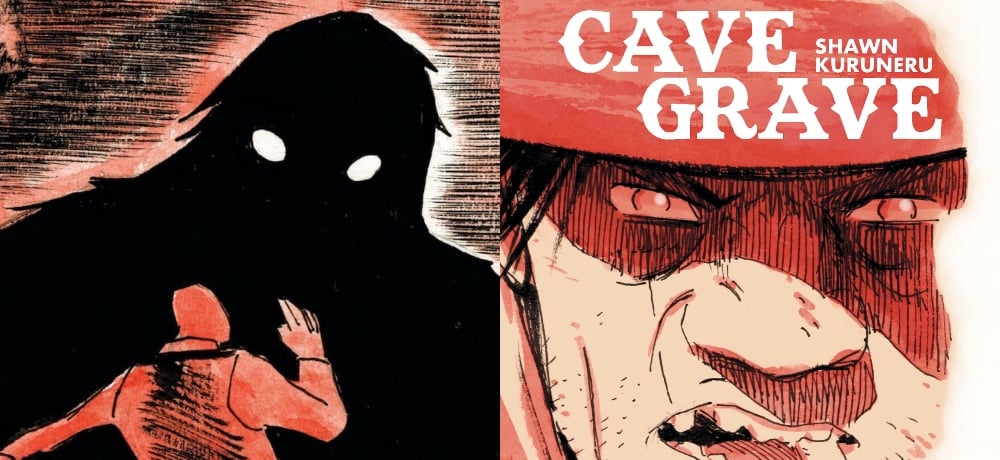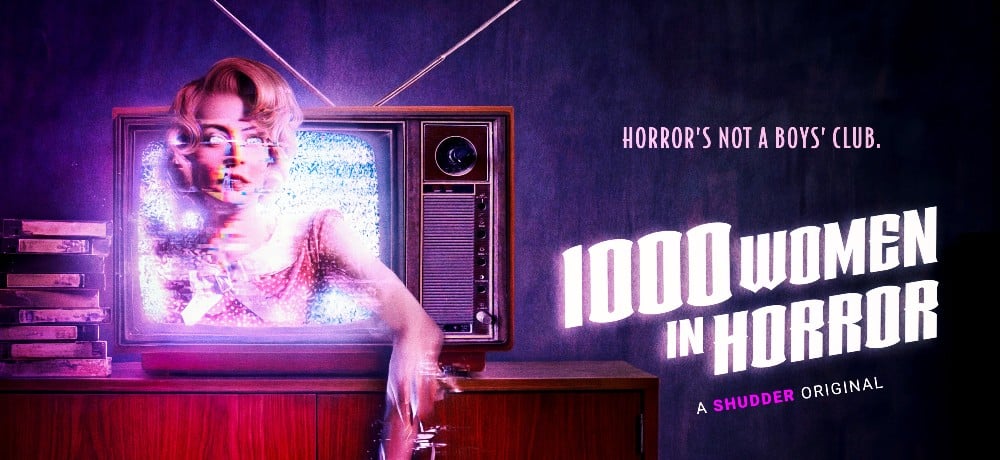





Over the last few years, Adrián García Bogliano has quickly become one of my favorite independent filmmakers due to his work on projects like Cold Sweat, Penumbra, Here Comes the Devil, Late Phases (easily the best werewolf movie we’ve had since Dog Soldiers), as well as his latest film, Scherzo Diabolico, a pitch-black revenge/comedy hybrid that demonstrates ambition always comes with a hefty price tag, especially when kidnapping is involved.
Scherzo Diabolico was released this week by Dark Sky Films on DVD and VOD platforms everywhere, and in honor of its release, Daily Dead had the chance to catch up with Bogliano, as well as Francisco Barreiro, who stars in the film and previously collaborated with the director on Here Comes the Devil. During the interview, we chatted about the inspiration behind the story, their experiences working together again, as well as Barreiro’s approach to digging into a complicated character like Aram and much more.
I want to start with you, Adrián, and talk about your approach to this story and how you viewed Aram's journey, in regards to where he starts and what happens to him as things rapidly get worse because of his actions.
Adrián García Bogliano: One thing I was very sure about when I started, I wrote this for Francisco, and after the work he made in Here Comes the Devil, I was sure that he could give me a character that was trying to be like that, where at times you would be surprised to be rooting for him. That's something that he is like. The character in Here Comes the Devil was also a character that isn’t understanding anything that is going on in his house in the whole movie, so he’s a bit violent, but yet, there is a very humane thing, a very human thing that he adds to every character that makes you understand him or like him. I thought that was something wonderful that Francisco could bring to this character, because it's a character that is very easy to dislike from the very beginning. He's a very grey guy, a very boring guy, and yet he's planning this crazy thing.
It's like he has everything against him and if you don't find an actor like Francisco to play it and to actually find something that you care about, you can lose your audience. That was something I had to keep in mind from the beginning—let's do this character, a difficult character, but let's have an actor who will help us smooth all of that out.
Francisco, when you first got the script for this and you were digging into Aram, were there certain things that you discovered about the character as you were peeling away those layers to figure out what makes this guy tick and what would drive somebody to do the things that he does in this movie?
Francisco Barreiro: Oh, yeah. When I read it, it was just shocking how complex he was as a character and how difficult it was. I was a little bit scared, but I had to see how I could just bring something very human to this role and to have the chance to explore that complexity was a great challenge. As humans, we are good, but we are bad, and I didn’t want Aram to be just this pathetic guy, either. I enjoyed the opportunity to build something very complex and human so that the audience can have a connection to him and can say, "Oh, that could be me or that could be my neighbor." For me, that was interesting, and the same with Here Comes the Devil.
It was just this character that has to be so real in a way so you can feel it. This is a nice chance to build something very different with Aram. It was pure gold for me as an actor to get a role like this.
What I think is interesting about the film is that a lot of the pressures your character is under reflect these societal pressures that so many of us face every day. The pressures of family, of all these external forces that keep coming down on you at your job and in life, and so you have to wonder how different it could have been for Aram if he would have just started living for himself? Sure, he had a hand in his own undoing, but a lot of his problems were things that other people put on him as well.
Francisco Barreiro: Absolutely. The character is someone who thinks he's just playing a game and he's playing with the other characters, but I don't think he fully realizes that most of those characters are taking something from him, too. It's a relationship that is more complicated because of that. He feels like he's cheating on his wife, but the wife is playing some mind games with him and she's the one actually pushing him to do some of the things, just because she knows how to push him away.
And then he builds another relationship with another woman and then another relationship, so you have three different lives, plus he is a kidnapper for one of those lives, too, which has its own set of complications. He’s got a lot on his plate.
What I recognized about this script was that the other characters are also playing a game with Aram, where they're victims of something and they are victimizers in another way, and I thought that was an interesting thing. I also thought the idea that he's a character that has a very different relationship with each woman was very interesting to me as well.
Typically, we wouldn't sympathize with a character like this, but we've all at some point felt invisible in our lives and you can see Aram was a guy that was invisible at work and invisible at home. He's completely invisible to his wife, too, and we’ve all felt that way at least once in our lives.
Adrián García Bogliano: Yeah, it is an exaggerated version of something I feel everybody has gone through at a certain point. And it’s a feeling that hits mostly people who are in their thirties who have built up these various facets of their lives. I saw it as a very common thing to have those kinds of thoughts, and the basis of why he goes in that dark direction is something that anybody can relate to.
Because you guys have worked together before, Francisco, what would you say was the biggest change you saw in Adrián between working with him on Devil versus on this project in particular?
Francisco Barreiro: It was the relationship that we built. We got to know each other during the shooting of Here Comes the Devil and we became close friends. For Scherzo, we were just really great friends from the beginning, but I also felt more confident with him this time, just because I knew that he was very open to whatever ideas I might have.
We have a little bit more time to build this character than we did with Here Comes the Devil, and I think that time, and the fact that we understand each other so much better now than we did years ago, really helped me as an actor. Making Scherzo with Adrián, and with the amazing range of actors he had cast in this, was a beautiful experience for me.